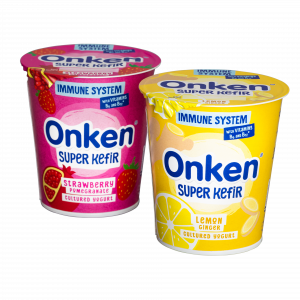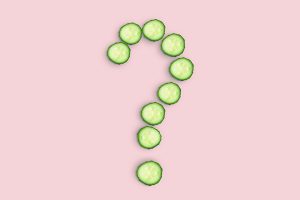This one simple food can help your gut health

Every day is a school day, so they say, and after the year we’ve had, learning about a product that’s not only good for our bodies, but also tastes amazing, is something we’re happy to get on board with.
For this precise lesson, we have to go right back thousands of years and have the people of the Caucasus Mountains, at the intersection of Asia and Europe, to thank. It seems inhabitants there created this liquid gold (or rather, cream?) by accident when they left kefir grains and milk to ferment in bags made from animal hides. But boy are we glad they did. It’s come on in leaps and bounds these days and can be enjoyed in many forms…
So, what’s so special about kefir? Here’s a complete guide to the good stuff.
What exactly is kefir?
In a nutshell, kefir is a cultured, fermented liquid that can be made from any type of milk. It’s created from small, translucent grains that are formed by bacteria and yeast existing together in their own ecosystem known as a scoby. Milk is then added to the kefir grains, where fermentation takes place – the length of the fermentation time determines the (natural) flavour. The finished product is commonly used as a drink, but it can also take on the forms of yogurt and soft cheese, too.
What does it look like?
With the consistency, colour and slight taste of plain yogurt, you could be forgiven for wondering what all the fuss is about. Sure, the smell is different – sort of yeasty – but otherwise kefir looks like it belongs dolloped on fruit or in cereal. And it does, in a way.
The taste is quite tangy with a sort of fizziness, but don’t let that put you off – there are delicious products, such as Onken Super Kefir, that have none of that bitterness. The health benefits hugely outweigh the slight unusual sensation on your tongue, and once it hits your gut, you’re in business. In fact, you won’t taste that tang at all if you choose a flavoured yogurt kefir to start your good-gut-health journey.
Why is it so good for you?
‘The gut is the “powerhouse” of our immunity,’ says Gina, a registered nutritional therapist (@eptonutrition). ‘Our gut immune cells interblend with the healthy bacteria that live in our gut. It’s important to strengthen our gut bacteria and therefore eating probiotic foods such as kefir will also feed our gut-based immunity.’
Kefir’s benefits are astounding. Firstly, the fact it’s rich in probiotics (friendly bacteria) means it helps to restore balance in the gut and therefore improves digestion. This is especially good news for those with IBS, as it eases bloating, too.
‘Milk-based kefir will provide calcium that is important for bone health,’ says Bridget Benelam, nutrition communications manager at the British Nutrition Foundation.
Thankfully, in this day and age, kefir may help to prevent infection, too. Again, it’s those magic probiotics that can modulate the immune system to stop infections, specifically lactobacillus kefiri, a type unique to kefir.
Recent studies have shown kefir to have great potential for cancer prevention and treatment thanks to those powerful probiotics. They stimulate your immune system and therefore reduce tumour growth. Scientists are continuing to research this, but the outlook is promising.
There’s a decent source of vitamin B12 in kefir products, which helps to keep nerve and blood cells healthy.
Kefir can also help aid weight loss thanks to its rich protein punch, meaning you’ll feel fuller for longer. ‘Good bacteria in the gut help to regulate our hunger hormones, providing us with signals to eat when we need to or keeping us satisfied,’ says Gina. ‘Similarly, gut imbalance can impair insulin signalling, the hormone that balances our blood sugar, which affects eating patterns, cravings, energy
And speaking of mood, a happy gut usually means a happy mind. ‘While there is still a lot we don’t know about how our gut influences our brain, there does appear to be ways that our gut can, in effect, “talk” to our brain,’ says Bridget. ‘The vagus nerve, which runs from our brain to our gut, may be one way that this happens, as well as some of the compounds that gut bacteria can produce, which enter the circulation and may have a role in brain signalling.’
How can you enjoy kefir?

Available in super fruit flavour combinations of Strawberry & Pomegranate and Lemon & Ginger, the Super Kefir yogurts contain billions of live cultures in 14 unique varieties, infused with B6 and B12 vitamins to help support your immune system. And unlike most kefir products Onken doesn’t have a trace of that raw tartness, instead this yogurt is super fruity, super tasty and super moreish, thanks to the addition of yummy fruit and ginger.
Onken Super Kefir yogurts are available at Tesco, Co-op and Ocado, and will be available in Asda and Sainsbury’s later this year; £1.50 for 350g.











